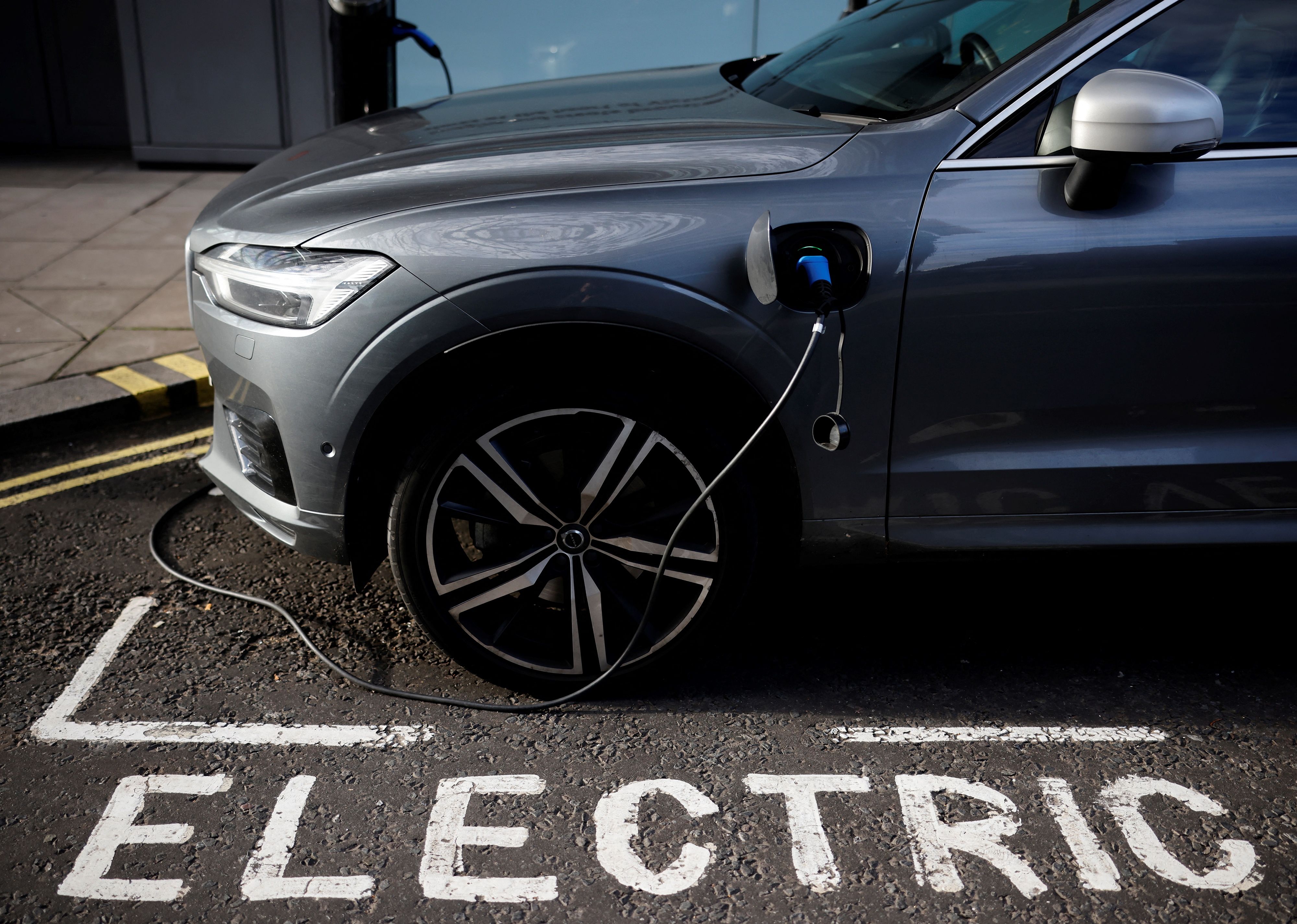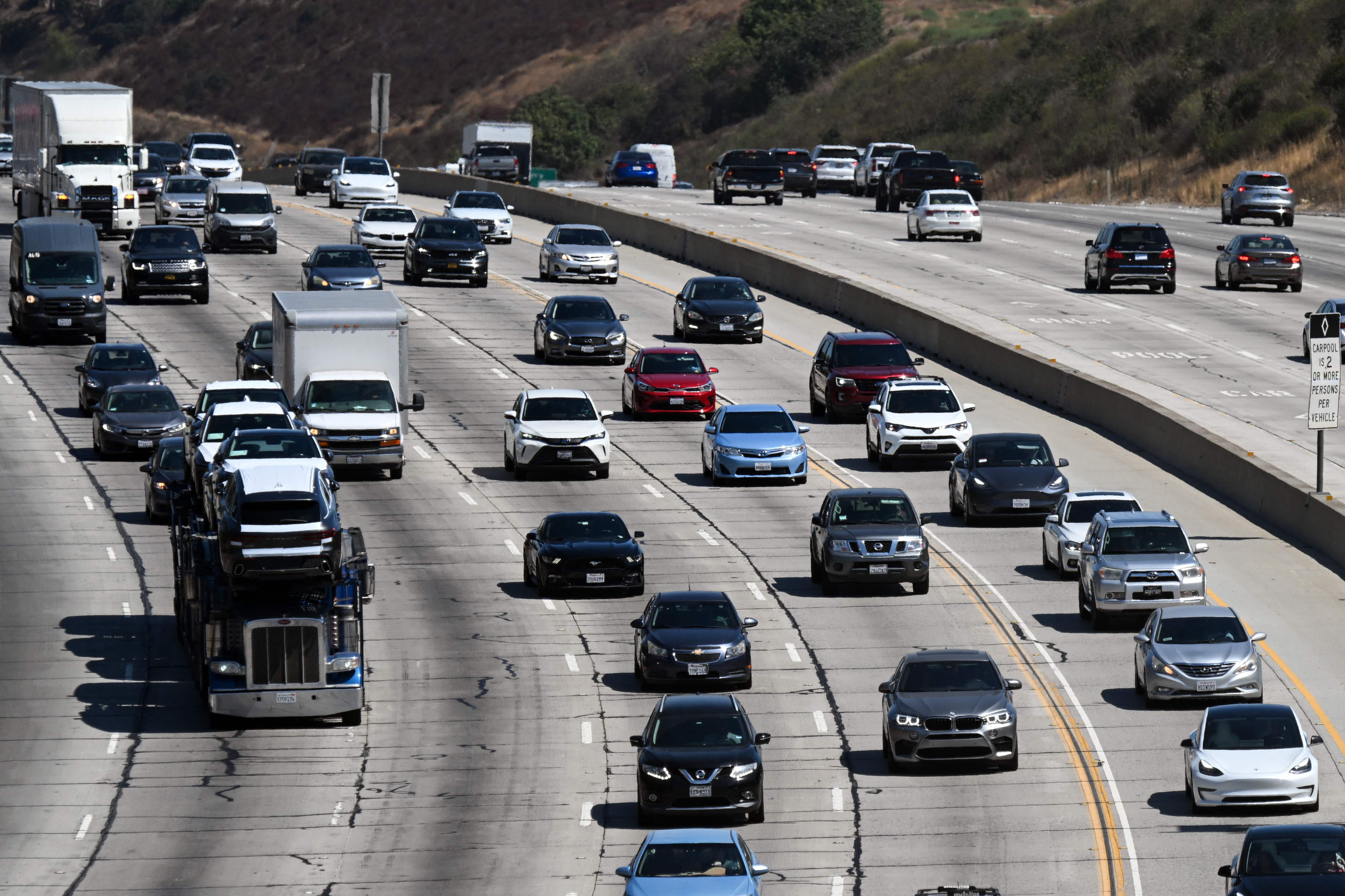New law requires 22% of cars sold in UK to be zero-emission
Threshold will rise annually until it reaches 100 per cent by 2035
Your support helps us to tell the story
From reproductive rights to climate change to Big Tech, The Independent is on the ground when the story is developing. Whether it's investigating the financials of Elon Musk's pro-Trump PAC or producing our latest documentary, 'The A Word', which shines a light on the American women fighting for reproductive rights, we know how important it is to parse out the facts from the messaging.
At such a critical moment in US history, we need reporters on the ground. Your donation allows us to keep sending journalists to speak to both sides of the story.
The Independent is trusted by Americans across the entire political spectrum. And unlike many other quality news outlets, we choose not to lock Americans out of our reporting and analysis with paywalls. We believe quality journalism should be available to everyone, paid for by those who can afford it.
Your support makes all the difference.New rules requiring car manufacturers to sell a minimum proportion of zero-emission vehicles has come into force, according to the government’s Department for Transport (DfT).
That generally means electric vehicles (EVs).
Under the new mandate which became law on Wednesday, car manufacturers will have to make sure at least 22 per cent of vehicles sold are zero-emission - or pay the government £15,000 per polluting vehicle sold above the limits.
The threshold will rise annually until it reaches 100% by 2035. There is also a threshold for van sales, starting at 10 per cent this year.
The mandate is a devolved policy and was developed with the Scottish government, Welsh government and Northern Ireland’s Department for Infrastructure.

The Westminster Government’s technology and decarbonisation minister Anthony Browne, who will visit an EV charging hub installed by bp pulse in central London on Wednesday, said:
“Alongside us having spent more than £2bn in the transition to electric vehicles, our zero-emission vehicle mandate will further boost the economy and support manufacturers to safeguard skilled British jobs in the automotive industry.
“We are providing investment certainty for the charging sector to expand our charging network, which has already grown by 44 per cent since this time last year.
“This will support the constantly growing number of EVs in the UK, which currently account for over 16 per cent of the new UK car market.”

Society of Motor Manufacturers and Traders chief executive Mike Hawes said: “The industry is investing billions in decarbonisation and recognises the importance of the zero-emission vehicles mandate in delivering net zero.”
The law comes as it emerged on Tuesday that a government target for EV chargers near motorways had been missed.
The DfT set an ambitious goal for there to be at least six rapid or ultra-rapid chargers at every motorway service area in England by the end of 2023 in a bid to improve the confidence of drivers to make long journeys.
However, new RAC analysis of data by charger locator service Zapmap found that just 39 per cent of the 119 sites met the target. The DfT said the number of public charge points is “surging across the country”.

Join our commenting forum
Join thought-provoking conversations, follow other Independent readers and see their replies
Comments